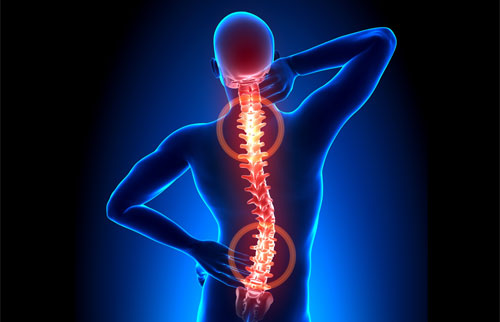Tailored Discomfort Treatments: Adapting Treatments for Your Needs
Experiencing pain can significantly impact your daily life, making even the simplest tasks seem daunting. Whether it's acute discomfort from an injury or the chronic pain of chronic conditions, understanding how to successfully manage and treat pain is essential. Fortunately, advancements in pain management services and therapies offer a variety of personalized options designed to address personal requirements and improve overall quality of life.
In this thorough guide, we will discuss various types of pain, treatment strategies, and the science behind why we experience pain. From conventional approaches to modern treatments, such as physical therapy and chiropractic care, we'll investigate the many pathways available for relief. Additionally, we will consider alternative treatments, including the use of CBD and acupuncture, and how lifestyle changes and mindfulness practices can be crucial in pain management. Ultimately, our goal is to equip you with the insight to adapt pain solutions specifically for you.
Grasping Discomfort Control
Pain management is a multifaceted methodology focused on alleviating and controlling pain. It understands pain as a complex experience that can notably impact an individual’s well-being. By combining various therapies, treatments, and lifestyle modifications, pain management aims to minimize discomfort and provide a superior overall performance. It is important to adapt pain management strategies, as varied individuals experience pain in different ways due to factors such as age group, physical ailments, and personal inclinations.
Sudden pain typically arises suddenly due to injury or illness and commonly resolves as the underlying cause is addressed. why not find out more , on the other hand, continues for an extended period, often without a clear cause, making it difficult to treat effectively. Understanding the distinction between these types of pain is crucial, as it can impact the decision of management strategies and interventions. Tailored therapies can be quite diverse, incorporating rehabilitation, drugs, non-traditional therapies, and lifestyle changes to meet the particular needs of each patient.
Efficient pain management also emphasizes the importance of a comprehensive approach. This includes the acknowledgment of psychological and emotional well-being's role in coping with pain. Techniques such as mindfulness, contemplation, and stress reduction can enhance pain relief and raise well-being. By recognizing the varied nature of pain, pain management services aim to support individuals to take control of their pain and facilitate a more fulfilling life.
Effective Ache Management Methods
Identifying the appropriate pain relief therapy typically requires a personalized approach, since individual individuals react differently to different treatments. This can consist of traditional methods including drugs, physiotherapeutic therapy, and chiropractic care, alongside alternative therapies including acupuncture and massage. Each therapy seeks to address specific pain types and can be integrated for more effective relief. Comprehending the underlying cause of pain is crucial to designing the optimal treatment plan.
Physical therapy is one of the foundations of pain management, notably for those suffering from chronic conditions including arthritis or back pain. A physical therapist can design a tailored exercise program that fortifies muscles, boosts flexibility, and helps teach the body to move pain-free pain. In addition to conventional exercises, modalities such as TENS therapy offer electrical stimulation to reduce pain by disrupting pain signals sent to the brain. The goal of these therapies is to lower pain levels while promoting function and independence.
In recent years, more people are considering alternative therapies like acupuncture and holistic approaches, acknowledging the interconnectedness of the body and mind in pain management. Acupuncture, a practice grounded in traditional Chinese medicine, features the insertion of fine needles into particular points of the body and has been proven to alleviate pain for various conditions. Furthermore, practices such as yoga and mindfulness meditation not only tackle physical symptoms but also help control stress and emotional aspects of chronic pain. These varied options enable individuals to take control of their pain management journey, leading to enhanced quality of life.
Holistic Methods to Pain Management
Integrative strategies to pain control emphasize the connection of the physical self, mental state, and soul in managing pain. These methods often merge a variety of therapies that go beyond traditional medication, focusing on the overall well-being of the individual. Practices such as mindfulness, meditation, and relaxation training are crucial in diminishing the sensation of pain and boosting emotional resilience. By fostering a state of calm and mental clarity, these practices can lead to a greater reduction in pain levels.
Moreover, incorporating routine physical movement, such as Pilates and gentle exercises, can play a key role in pain management. These movements not only enhance flexibility and strength but also encourage the secretion of endorphins, the body's natural analgesics. Yoga, in particular, offers targeted poses that address various forms of pain, helping to ease discomfort while simultaneously promoting relaxation. Incorporating physical activity into a consistent regimen can enhance better pain control and overall health.
Dietary choices and dietary choices also make a considerable impact on pain management. An anti-inflammatory diet loaded with whole foods, omega-3 fatty acids, and antioxidants can lessen inflammation in the body, potentially relieving chronic pain symptoms. Additionally, maintaining hydration and avoiding excessive processed foods may help in supporting optimal health. By merging dietary considerations with physical and mental health practices, individuals can develop a comprehensive approach to managing pain that addresses multiple facets of their overall condition.
